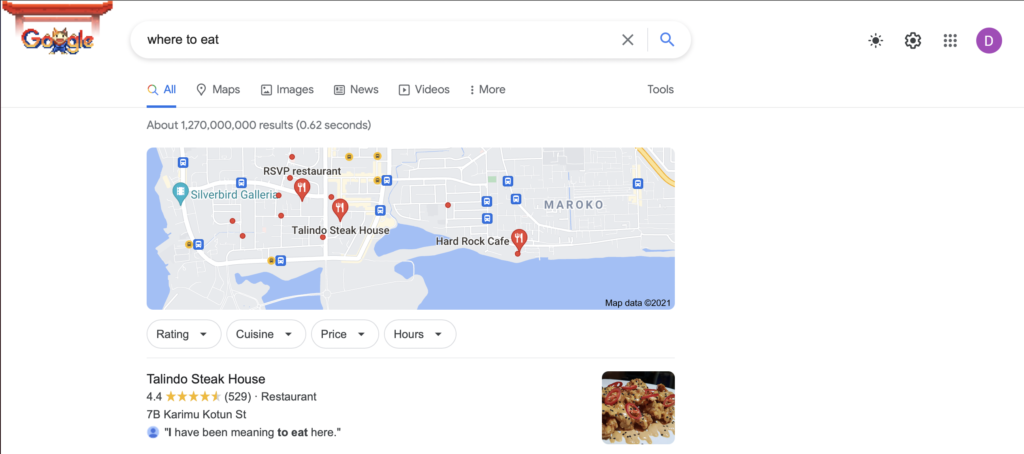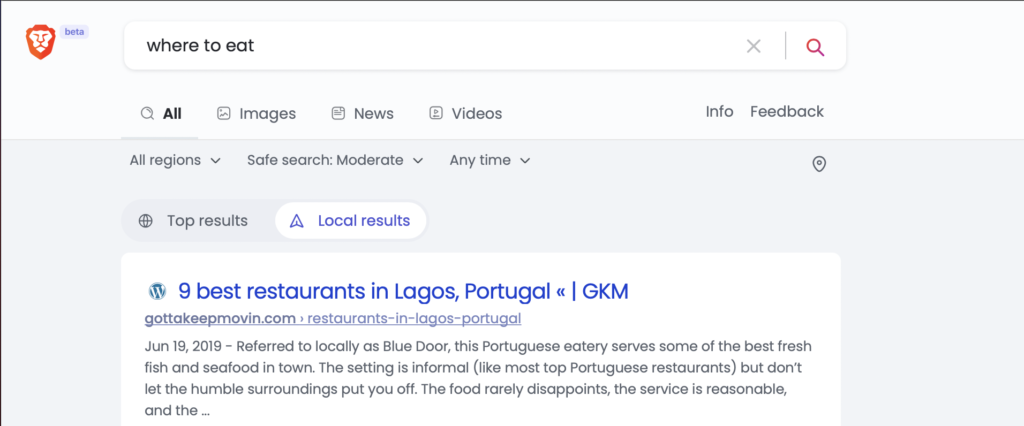Brave search engine is a non-tracking one (unlike the rest, save for DuckDuckGo) and is also independent. This means their index is not dependent on any other search engine. For context, DuckDuckGo is dependent on Bing Search to show results. According to the company, its product is the “world’s most complete, independent, private search engine.” In June, TechCrunch reported that the company “recently passed 32 million monthly active users (up from 25 million back in March) for its wider suite of products”. In this post, we’ll like to take a quick tour of the Brave search engine and help you come up with an answer to a question you’re probably already asking – how good is the Brave search engine? Well, let’s find out. READ MORE: 7 great privacy focused search engines alternatives to Google.
Brave Search Engine Review
In this review, we’ll be testing the browser across certain factors we think are quite important to an average user. Stay with us.
1. Privacy
According to Brave, and unlike Google, they don’t track users, their searches, or their clicks. In their own words, “It’s impossible for us to share, sell, or lose your data, because we don’t collect it in the first place.” Well, it’s not very straightforward to know if they actually do this. So, we’ll have to take their words for it.
2. Relevance Of Results
After searching the phrase “where to eat” on both Google and Brave search, there were some discrepancies worth noting. For Google, which is great at determining searcher’s intent, it showed me a list of restaurant/food businesses close to my location. On the other hand, Brave search showed normal search engine results from another city. After clicking “Local Results”, it still showed a list of blogs (with the best SEO obviously), still from another city (with a similar name). Searcher’s intent is a very important part of this process and Google seems to have hacked that. Searching for “where to eat” most likely means I’m in a new location and looking for restaurants nearby. Google understands this and immediately shows a list of businesses with address and reviews. Brave does not.
3. Coverage & Regions
While Google have a list of all countries and automatically detects which country a user is from, Brave has a limited list of countries list, then a general “All Region” option. They’re definitely still growing and I expect this to be fixed in the coming weeks or months. To take on global companies and search engines, it’s only good that you’re global too.
4. Creator Friendliness
Brave seems to be very creator friendly as they have said they do not use secret methods or algorithms to bias or censor results. According to the company, its product relies on “anonymous community contributions to refine results, and community-created alternative ranking models to ensure diversity.”
Verdict On Brave Search Engine?
Overall, while we acknowledge that Brave search engine is a good product, there’s a really long way to go. Especially if they’re going to compete with the current players in the industry. While Brave sees the privacy feature as a distinctive one, we’re left with only one important question. Are users really willing to making the trade off between privacy and being served relevant and useful ads? Let us know your thoughts in the comments section.



